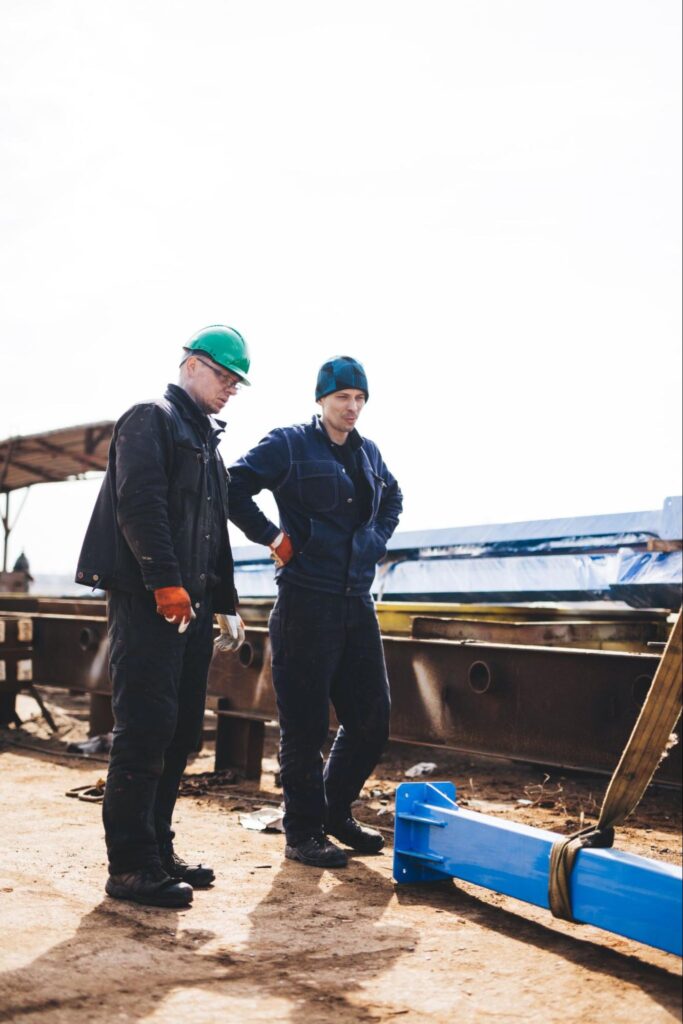October 1, 2024
What is Millwright Work?: An Essential Guide

Key Takeaways
- Versatile Craftsmanship: Millwright work encompasses the installation, maintenance, and repair of complex machinery, essential for numerous industries.
- Technical Skillset: Millwrights require a diverse skill set, including mechanical knowledge, precision alignment, and problem-solving capabilities.
- Career Advancement: The field offers significant opportunities for advancement into supervisory roles or specialized areas within various sectors.
At Atlantic Millwrights, our mission is to support industry with precision and expertise. Millwright work is essential to the seamless operation of industrial machinery. Whether it’s setting up machinery at a factory, maintaining power generation equipment, or troubleshooting issues in production environments, millwrights are integral to operational success.
This article explores the services we offer, the skills required, and the opportunities available in this dynamic trade.
What is Millwright Work?
At Atlantic Millwrights, we handle every aspect of millwright work: installation, maintenance, troubleshooting, and machinery optimization. Our millwrights work with the most advanced technologies to ensure every piece of equipment is aligned and calibrated for peak performance. Explore our millwright services to see how we can meet your industrial needs.
The Daily Responsibilities of a Millwright
- Installation: Setting up new machinery in industrial settings, ensuring proper alignment and functioning.
- Maintenance: Conducting regular checks and maintenance tasks to prevent machinery breakdowns.
- Troubleshooting and Repair: Identifying and solving problems that arise with mechanical equipment, often under tight deadlines.
Required Skills and Training

Becoming a millwright requires a combination of formal education and hands-on training. Here’s how aspiring millwrights typically prepare for their careers:
Educational Background
- High School Diploma or GED: Essential for entry into specialized training programs.
- Technical Training: Many millwrights attend technical schools or community colleges where they learn the fundamentals of mechanics, welding, and computer-controlled machinery.
Apprenticeship Programs
- Duration: Millwright apprenticeships usually last about four years, combining on-the-job training with classroom instruction.
- Certification: After completing an apprenticeship, millwrights often receive a journeyman certificate, qualifying them to work independently.
Tools and Technologies
Millwrights use a variety of tools and technologies to perform their duties effectively:
- Hand and Power Tools: Wrenches, welders, and precision measuring instruments.
- Advanced Machinery: CNC machines and laser alignment tools.
- Software: Computer applications for designing and simulating machinery layouts.
Challenges We Overcome
The nature of millwright work involves physical demands and strict safety protocols, which we embrace. Our team is trained to handle extreme conditions, from confined spaces to high-pressure environments. Safety is paramount at Atlantic Millwrights, and we adhere to rigorous standards to ensure the well-being of our workforce and clients. Learn more about our safety protocols.
Opportunities for Career Advancement
Millwright work offers various pathways for career growth:
- Specialization: Some millwrights specialize in areas like robotics or aerospace.
- Supervisory Roles: Experienced millwrights can become supervisors or project managers.
- Consultancy: Seasoned professionals might consult on machinery design and efficiency improvements.
Why Millwright Work Matters
Millwrights are the backbone of industrial operations. Their work ensures the smooth functioning of manufacturing plants, construction sites, and energy facilities, contributing to the economy and enhancing productivity. Atlantic Millwrights takes pride in delivering high-quality services that impact industries positively. See the industries we’re proud to serve.
Partner with Atlantic Millwrights Inc.
Choosing a career in millwright work is both challenging and rewarding. At Atlantic Millwrights, we offer a supportive environment where craftsmanship meets career growth. Whether you are interested in joining the field or need expert millwright services for your operations, we are here to support you. Connect with us by contacting us today!
Frequently Asked Questions
What education is required to become a millwright?
A high school diploma followed by technical training and a formal apprenticeship are typical.
How long does it take to become a certified millwright?
It generally takes about four years of apprenticeship training to become a certified journeyman millwright.
What industries employ millwrights?
Millwrights are employed across various sectors including manufacturing, power generation, and construction.
What are the advancement opportunities for a millwright?
Opportunities include moving into supervisory roles, specializing in a particular type of machinery, or working as a consultant.
Are there continuing education requirements for millwrights?
While not always mandatory, continuing education is crucial for keeping up with technological advances and maintaining certifications.
By understanding the scope and depth of millwright work, individuals and companies can better appreciate the vital role these professionals play in the modern industrial landscape.





